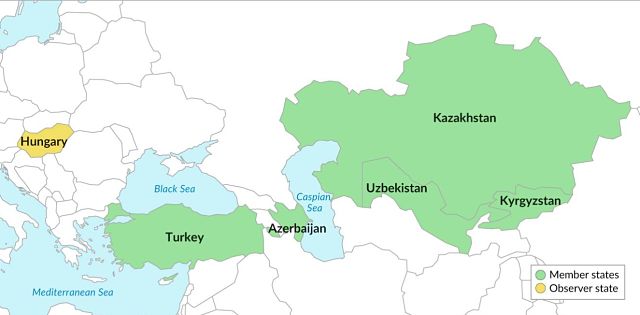First, it is impeccably drafted in terms of international law and the norms of the international community, since its principles are based on them. While some accuse it of pan-Turkism and claim that it aims to redraw the map of Eurasia, the programmatic text of the Turkish leaders states the opposite — a commitment to «the norms and principles of international law, including sovereign equality, territorial integrity and the inviolability of internationally recognized borders and states». There is no talk of abolishing existing states in order to merge them into a superstate, nor of territorial claims beyond their internationally recognized borders. On the contrary, the document emphasizes the strengthening of regional and global cooperation, cooperation with existing states and their associations.
Second, the document is based on specificity, not rhetoric. The commonality of culture, language and traditions of the Turkic states is simply stated as something obvious and doesn’t require justification or exaltation. The emphasis is on what specifically the Turkic states are called to unite and promote their development. For example, the members of the OTS have agreed on close cooperation in the areas of transport, energy, technology exchange, space, infrastructure, medicine, science, education, tourism, and media. Each of these areas has specific directions of interaction and common goals.
The ideological goals in these areas include raising the human dignity of the inhabitants of the Turkic countries and their prosperity. It is also stated that they will strive to embody the common principles of democracy while respecting the circumstances of each individual state on this path. This is understandable given the specific nature of a country like Turkmenistan. However, it is hoped that such specificities will diminish over time and that the high standards set by Turkey will set the tone within the community of these countries.
It is worth mentioning separately the title of this article. The creation of the OTS has caused a new hysteria among the Russian imperialists and chauvinists because of the clear contrast between this breakthrough and the failures of their «Russian world», not to mention the ideas of «Slavic unity», which are no longer visible on the horizon. The situation on the Belarusian-Polish border illustrates this vividly — while the Turkic countries are discussing cooperation, the two largest Slavic countries, the «Union State of Russia and Belarus» and Poland, are on the verge of full-scale war.
Another war is simmering and can break out at any moment between Putin’s Russia and another major Slavic country — Ukraine. And not just a Slavic country — it belongs to the same branch as Russia and Belarus, which is why they are trying to pull it into the «Russian world». It would be the same as if Turkey and Azerbaijan were now on the verge of war.

